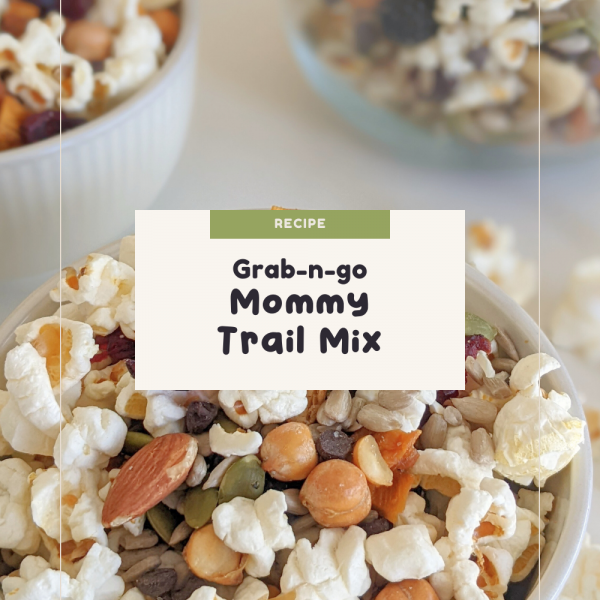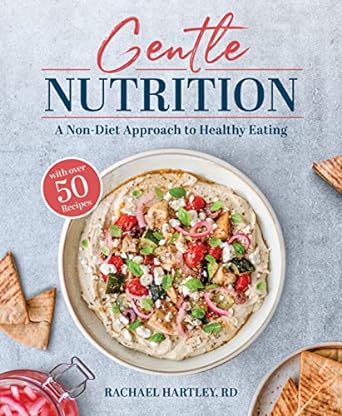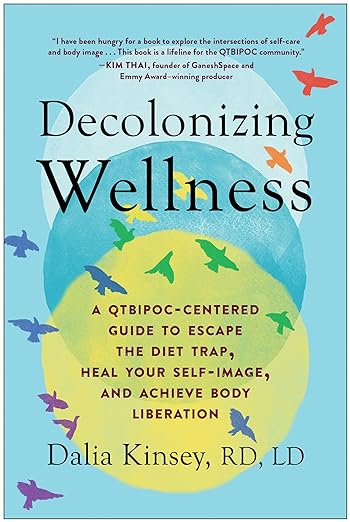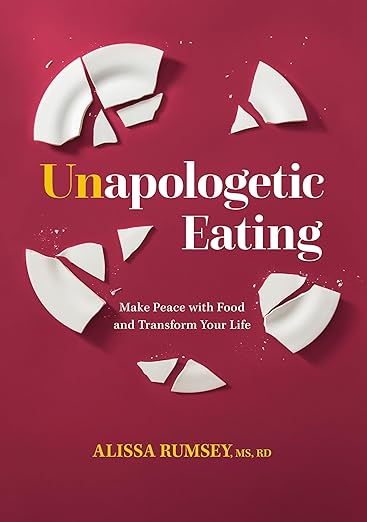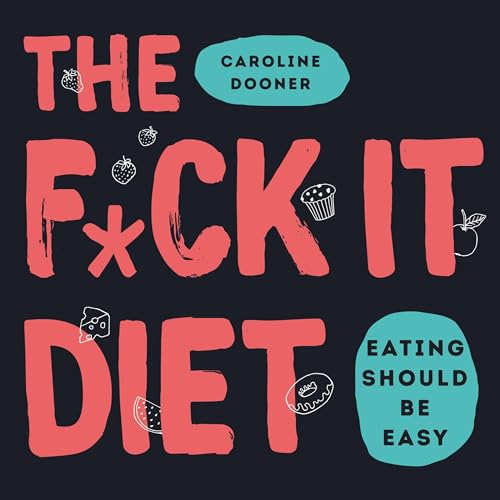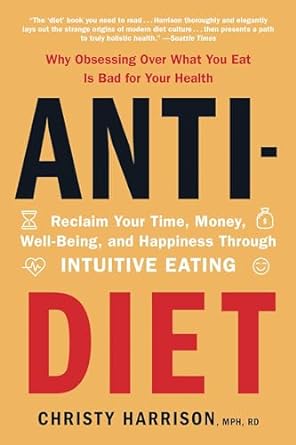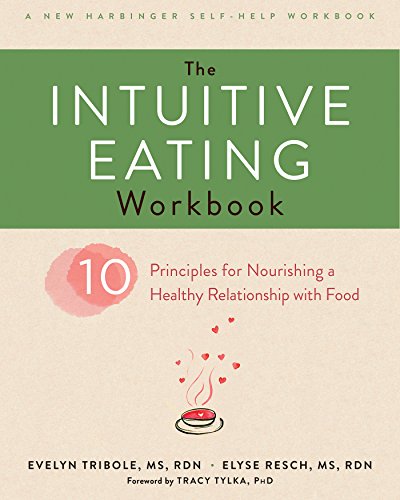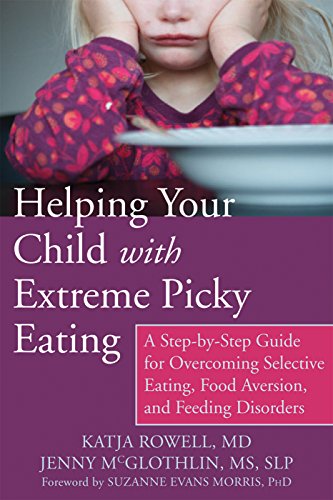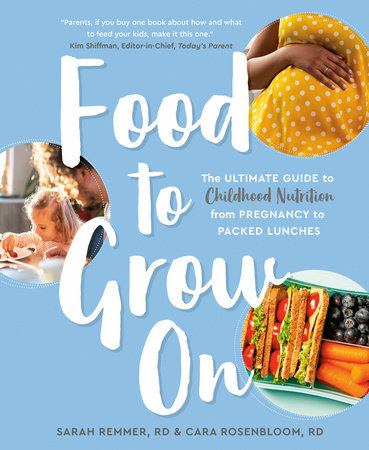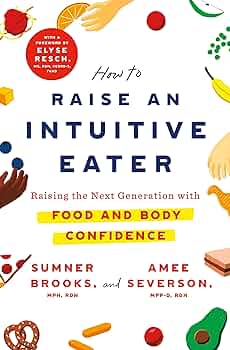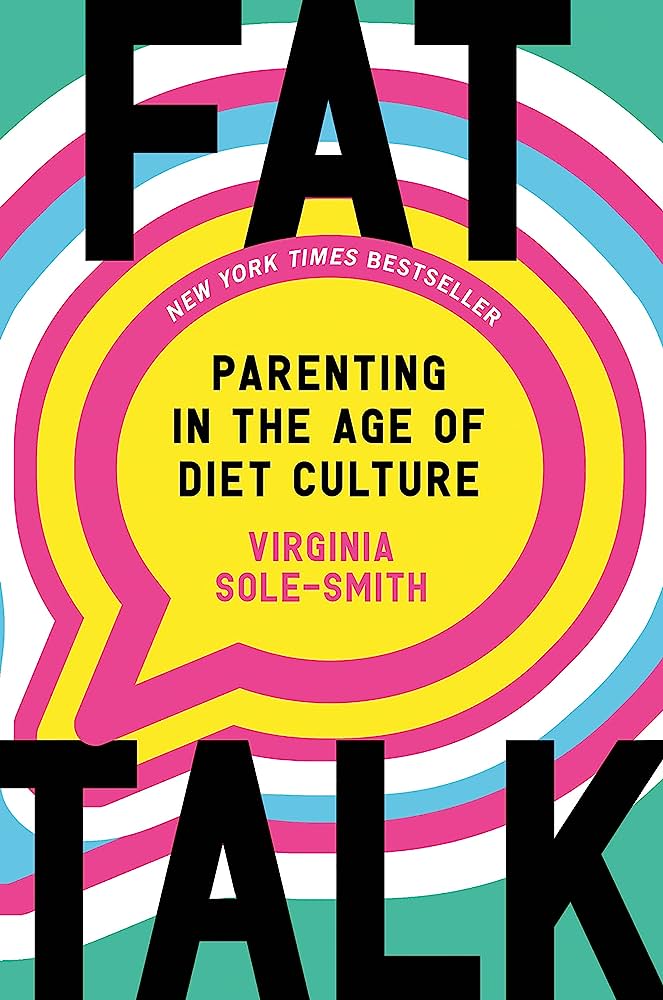When it comes to nutrition, there are so many “rules” about what not to do while pregnant that many soon-to-be mamas report feeling anxious instead of excited. Unfortunately, pregnancy resources often include undertones of diet culture and weight stigma where some folks don’t feel safe accessing information that may be beneficial to their health.
You deserve to feel confident navigating pregnancy nutrition. We’re here to help.
Gentle nutrition is a branch of intuitive eating that approaches nutrition from a place of curiosity and internal wisdom. It’s an inclusive non-diet way of providing information gently without restriction or strict rules. You get to decide how to use the following information to inform your health decisions based on your values, how it feels in your body, and without judgment.
Our gentle prenatal nutrition guide will empower you with weight-neutral and non-diet strategies to confidently nourish yourself during pregnancy.
Friendly disclaimer, the information provided is not a replacement for individualized medical advice. This guide is intended to be informative with gentle suggestions to help and avoids strict rules that can create mom shame. However, due to safety around fetal development, some explicit guidelines are included. We aim to share these respectfully and acknowledge that not all recommendations are suitable for everyone.
What You’ll Find Inside
Use these hyperlinks to skip ahead or continue reading:
- Vitamins
- Nourish Yourself Without Shame
- Morning Sickness
- Constipation
- Heartburn
- Caffeine
- Food Safety
- Iron Deficiency
- Hydration
- Food Cravings
- Low Energy
- Weight-Neutral Pregnancy Care
- Body Changes
Prenatal Vitamins

💡Taking a daily prenatal vitamin is important as a mama’s nutrition needs change quite a bit during pregnancy.
What to look for in a prenatal vitamin:
- 400 mcg of Folic Acid
- 15 to 28 mg of iron
- Includes Calcium and Vitamin D
- Bonus if it contains DHA omega-3 fatty acids
When thinking about brands, expensive doesn’t always mean better, so opt for one with the above ingredients at a comfortable price.
A key difference is how much iron is included so if your iron is low or you have a history of low iron, then consider a prenatal with iron on the higher end (around 28mg).
Vitamins can also be expensive. Canada has a prenatal nutrition program for folks needing support with access to prenatal essentials like vitamins. Speak to your public health nurse or physician about accessibility.
Check out our Instagram post on vitamins and supplements:
Want to know more about vitamins? Read our article answering, “Should I Be Taking Any Supplements?”
Nourish Yourself Without Shame

💡Feed yourself regularly with whatever food is available to you. Avoid trying to eat “perfectly” or demonizing food as “bad” or “good” since this can create stress. Reducing stress as much as possible is important for expectant mamas.
First, eat enough
Your body needs adequate energy to operate its internal systems, like your heart beating, before being a baby incubator. Eating enough first is more important than the quality of the diet. Yes, we said it. This doesn’t mean a nutritious diet isn’t important for an expectant mother, instead, it’s about reducing the stigma attached to eating ‘perfectly’ during pregnancy. Perfect eating is unnecessary, not realistic or accessible to everyone and can lead to more stress, guilt, and shame, as well as vulnerability to restriction or food-seeking behaviour.
Eat regularly with foods you can tolerate
Pregnancy symptoms can make feeding yourself hard enough. Sometimes your desire for certain foods or your ability to prepare food changes during pregnancy with no explanation, and that’s okay. You know what feels good in your body and what doesn’t. Choose foods you can tolerate and that are accessible. It’s okay to be repetitive and rely on convenience or pre-packaged foods. Eat at convenient times each day. Aim to fuel your body with regular meals and snacks every few hours if possible to spread out your daily needs. With structure comes predictability for your body to anticipate and rely on regular eating times. Be kind to yourself if some days don’t work out.
All foods fit into a healthy diet
Choose foods that feel good in your body and align with your values. Don’t listen to the food police or cut unnecessary foods out of your diet. Don’t stress over the quality of the food. For example, a local grass-fed steak may have a different nutrient profile than a boxed frozen burger patty but both provide a satisfying source of protein and fat needed to develop a baby which is all that matters.
Permit yourself to eat less familiar foods. Don’t feel bad if you’re not buying organic foods or you’re relying on take-out. There’s nothing wrong with skipping vegetables or eating potato products for a month if that’s what’s working. Always remember, eating enough and regularly without stress is most important for you and your baby.
A note regarding food costs. Feeding yourself is expensive. If you are experiencing food insecurity, please talk to a public health nurse about accessibility and consider accessing your local food bank.
Include balance when possible
Consuming regular balanced meals/snacks can be beneficial as the macronutrient distribution (protein, carbs, fat, and fibre) provides sustained energy over time and promotes stable blood sugar. This helps us to feel more satisfied and regulate our hunger. However, eating balanced meals is not mandatory to be healthy. It’s a tool that you can use if you want but is not necessary or needed all the time.
Focus on addition not subtraction when making changes to your eating.
If you’re interested in increasing the balance on your plate, focus on what you can add rather than eliminating foods you tolerate. For example, adding a handful of baby carrots on the side of a hot dog creates a balanced meal.
For a person who has a complicated relationship with food, balancing meals and snacks can provide a safety net if you’re vulnerable to disordered eating or intrusive food thoughts. If you have concerns about your diet or would benefit from some professional reassurance, consider support from a dietitian.
Balanced meals and snacks include any combination of all foods.
| Balanced Meal Examples | Balanced Snack Examples |
| Cheeseburger with fries and salad | Toast and peanut butter |
| protein: meat or tofu/cheese | carb: toast |
fat: mayo | protein: peanut butter |
| carb: bun/fries | |
| fiber/veg: lettuce/tomato and salad | Crackers and cheese |
| carb: crackers | |
| Eggo waffles with berries and hard-boiled eggs | protein: cheese |
| protein: eggs | |
| fibre/fruit: berries | Yogurt, fruit and granola |
| fat: butter on waffles | carb: granola |
| fiber/fruit: berries | protein: yogurt |
Simple weekly meal planning template
Making decisions about what you’re going to eat can be draining when you’re doing all of life’s responsibilities not to mention being pregnant. It may be helpful to have an idea of simple meals/snacks ahead that can be used for grocery shopping and in emergencies. Keep it simple with 1-2 options.
| Weekly Meal Planning Template | Examples |
| Simple breakfast ideas (1-2): | yogurt, fruit and granola OR Eggo waffles and hard-boiled eggs |
| Simple complex meal ideas (1-2): | rotisserie chicken, microwave baked potato and microwave frozen broccoli or Kraft dinner |
| 1-2 snack ideas: | cheese and crackers or poptart |
| Emergency snack: | granola bars in purse and car (keep stocked!) |
| Emergency meal: | Doordash burger or frozen pizza |
| 1 thing to try/add: | add bagged salad and dressing at dinner |
How much should I eat?
Many pregnancy guidelines focus on calories per trimester as a way to limit too much weight gain. Teaching pregnant women to be preoccupied with calories and weight is not helpful. It decreases body trust and increases the risk of disordered eating and body image dissatisfaction. Instead, aim to continue eating regularly over the day while honouring your hunger. Give yourself unconditional permission to enjoy all foods. You may experience days where you eat more and days where you eat less, which is fine.
If your symptoms impact honouring your hunger, try using simple low-barrier foods to ensure regular eating. If you fear you are eating too much, first pause and be kind to yourself. Avoid negative self-talk. It’s okay to have days where your intake is high. Don’t restrict yourself as that may increase hunger or desire for ‘forbidden’ foods. If adequate intake is ruled out, and eating more feels distressing then consider working with an intuitive eating practitioner to create safety around food.
Disordered Eating Disclaimer
Disordered eating during pregnancy poses a significant health risk. If you are experiencing disordered eating, inform your provider for additional monitoring such as labs and vitals checks and seek out an eating disorder-informed practitioner to support you.
Looking to work with an eating disorder-informed dietitian during your pregnancy? Book a consultation with one of our dietitians. We have experienced dietitians to help you navigate your pregnancy-related nutrition concerns in a safe, inclusive, and respectful environment.
Morning Sickness

💡Morning sickness, also known as nausea during pregnancy, is one of the most common and unpleasant symptoms. It is often more common in the first trimester and then subsides; however, some may experience nausea throughout their entire pregnancy.
If you’re struggling with nausea early on, please don’t wait until you are picked up by a prenatal care provider. Access a walk-in clinic or telehealth provider for support.
Strategies to alleviate morning sickness:
- Eat frequently with foods you can tolerate. Aim to eat something every 2-3 hours. Try not to get too hungry as this can increase nausea.
- Foods that are neutral in flavour and starchy may be soothing if you feel nauseous.
- Adding protein snacks right before bed can help to maintain satiety overnight. Examples: nuts, greek yogurt, or cottage cheese.
- Keep an emergency snack at your bedside to eat immediately upon waking, such as dry crackers, rice cakes, or cereal. This includes the middle of the night and first thing in the morning.
- Ginger may help to relieve some nausea. Try ginger tea or ginger ale.
- Stay hydrated with regular fluid intake. Try to avoid going too long without drinking as drinking a lot at one time, to the point of overfullness, may increase nausea.
- Use convenience foods more often especially if food prep makes you nauseous.
- Be kind to yourself. Feed yourself with any tolerated food. Be repetitive if needed. It’s okay if your diet isn’t perfect. Being fed is more important.
If you’re struggling to find relief, please talk to your doctor about an antiemetic medication. Safe options are available.
Areas of concern that require medical attention for morning sickness
Please seek immediate medical attention if:
- Nausea is significantly impacting your ability to eat or drink
- Vomiting is occurring frequently
- You’re experiencing symptoms of severe dehydration such as difficulty regulating body temperature, feeling lightheaded or fainting, or urine being dark brown in colour
Constipation

💡Constipation during pregnancy is common. It can be uncomfortable as pregnancy hormones slow digestion and your growing baby can put pressure on your belly or organs.
Tips to manage constipation during pregnancy:
- Drink plenty of water and other fluids. Not enough fluid can dry out the stool while it’s in transit making it harder to pass. More fluid helps move things along – like a waterslide.
- Add in soluble fibre foods to add bulk to the stool such as chia seeds, hemp hearts, avocado, brussels sprouts, asparagus, and sweet potato.
- Add foods with natural laxative properties to increase transit time such as prune juice, prunes in oatmeal, apple sauce, mango, pears, or peaches.
- Eat regular meals and snacks to promote gut regularity as much as possible. Going long periods of time without eating may slow gut motility.
- Try to include gentle movement when possible such as light walking to promote gut motility.
- Consider a psyllium husk (soluble fibre) supplement such as Metamucil. This can be especially helpful if eating fibre foods is challenging.
If you aren’t finding relief, talk to your provider about a gentle stool softener such as lax-a-day or Restorolax. Be aware, if you’re taking an iron supplement, you are more likely to experience constipation. Straining during a bowel movement may be indicative of hemorrhoids which are common in pregnancy and should be discussed with your provider.
Heartburn

💡Heartburn is another common symptom and typically occurs later in pregnancy as your baby grows and your organs are compressed. Hormonal changes may also cause the valve, which stops acid from entering your esophagus, to relax increasing heartburn.
Helpful ways to manage heartburn:
- Eat smaller, more frequent meals (eg. every 2-3 hours). Going too long without eating as well as eating large meals that take longer to digest can increase heartburn.
- Eat slowly and chew food thoroughly as much as possible. Chewing food until it becomes a pulp before swallowing can help with digestion. Take small breaks when eating to promote slowing down if needed.
- Aim to stay upright or elevated at a 30-45 degree angle for 1 hour after eating. Laying flat puts pressure on the valve that keeps acid out.
- Limit common triggers such as very spicy foods, acidic foods, deep-fried foods, or caffeine.
- Constipation may make heartburn worse, review our tips on managing constipation to promote bowel regularity which may also help heartburn.
If heartburn is impacting your ability to eat or drink regularly or your sleep quality, speak to your provider about heartburn medication that is safe for pregnancy. Keep in mind that some antacids may increase constipation or impact the absorption of iron and should be taken separately to a prenatal or iron supplement.
Caffeine

💡Caffeine is often a confusing topic in pregnancy, which can be frustrating when caffeine is so desirable in those low-energy periods. Research shows that a small amount of daily caffeine is considered safe, so you can still enjoy your morning coffee!
The following information is meant to help with making informed decisions for your health and may not be suitable for everyone. We respect your personal choices.
Health Canada recommends limiting caffeine intake to under 300mg per day during pregnancy. Keep in mind caffeine can also be found in some herbs, foods like chocolate or caffeinated drinks so aiming for around 200mg per day is safest.
200mg of caffeine looks like:
- Around 1.5 cups of brewed coffee
- ~2 shots of espresso
- 3 cups of strongly brewed tea such as green, black or oolong.
Energy drinks are not recommended during pregnancy as stated on most food labels.
For a non-caffeinated option, try iced or hot herbal tea. Per Health Canada, some herbal teas are considered unsafe during pregnancy and should be avoided.
Herbal teas that are considered safe:
- Ginger
- Lemon balm
- Orange peel
- Peppermint
Herbal teas considered unsafe during pregnancy:
- Chamomile
- Chicory root
- Aloe
- Buckthorn bark
- Coltsfoot
- Senna
- Comfrey dock
- Sassafras
- Lobelia
- Pennyroyal
- Labrador
Food Safety

💡 Most foods are considered safe during pregnancy. The following information is meant to help with making informed decisions for your health and may not be suitable for everyone. We respect your personal choices.
Food safety limits the risk of possible food-borne illness from bacteria such as Salmonella, E.coli or Listeria and avoids possible exposure to substances that can negatively impact a developing fetus. You can reduce the risk by following food safety practices and consider reducing your intake of higher-risk foods.
Tips for food safety during pregnancy:
- Choose low mercury fish more often including salmon, skipjack tuna, haddock, catfish, anchovies, tilapia, trout, sole, sardines, char, smelt, halibut, cod; canned light tuna is low mercury and has no limit on consumption.
- Reduce intake of high mercury fish to 1 cup per month such as fresh or frozen albacore tuna*, big eye tuna, king mackerel, marlin, orange roughy, swordfish, and tilefish.
- Canned albacore tuna* is lower in mercury and safe to consume up to 2 cups per week.
- Avoid raw fish or meat.
- Cook eggs, deli meat and hot dogs thoroughly.
- Avoid raw eggs and unpasteurized dairy/juices.
- Data around soft cheese is inconsistent. Some say pasteurized soft cheese is fine and others say it should be avoided.
- Practice regular safe food storage and good hand hygiene to minimize possible transmission.
There are no studies on kombucha intake and pregnancy. However, since it is often unpasteurized, it is likely best avoided.
Per Health Canada, no amount of alcohol is considered safe or recommended during pregnancy.
We respect that limiting the intake of higher-risk foods such as high mercury fish or avoiding raw foods may not be accessible for everyone or align with everyone’s values.
Iron Deficiency

💡 Iron deficiency anemia can be common as your iron needs increase during pregnancy. You may be more at risk of developing anemia if you are having multiple babies or have a history of low iron.
A pregnant person needs 27mg of iron per day.
Strategies to promote adequate iron intake during pregnancy:
- Continue daily prenatal vitamin that includes iron.
- Aim to consume an iron-rich food at each meal/snack.
- Pair iron-rich foods and/or supplements with iron with a source of Vitamin C like orange juice, strawberries, bell peppers, or tomato to increase absorption.
- Antacids, caffeine and calcium foods such as milk or yogurt, can impede iron absorption. Try to space these from your prenatal or iron supplement by 2 hours if possible.
Food sources of iron:
- Red meat and organ meat
- Shellfish, poultry, eggs
- Iron-fortified cereals (can be used in baking)
- Beans and legumes
- Whole grain bread
- Leafy green vegetables like spinach
Food examples of iron foods with a source of Vitamin C: baked beans in tomato sauce on toast, roast beef sandwich with spinach and bell peppers, scrambled egg on whole grain wrap with a glass of OJ, baked fish in mango sauce with cooked broccoli and potato, a bowl of iron-fortified cereal with strawberries
Signs of iron deficiency:
- Significant low energy
- Weakness
- Heavy breathing/breathlessness
- Heart palpitations
- Pale or yellowish skin
Talk to your provider about getting your iron levels checked if you’re feeling off and starting a supplement if needed. Keep in mind that Iron supplements may increase constipation.
Low Energy

💡Low energy shows up a lot in pregnancy, especially in the first and third trimesters. We understand it’s hard!
Tips to help with low energy during pregnancy
- Rest! Give yourself permission to rest when needed.
- Eat simple, regular meals and snacks over the day to promote consistent energy
- Use convenience foods more often – they exist to make life easier! Examples – prepackaged meals and snacks, take-out, meal delivery companies
- Include a source of protein and carbs in snacks to promote stable blood sugar such as cheese and crackers or peanut butter toast
- Stay hydrated with regular fluid intake – try a tumbler cup with a straw to make it easier to drink
- Recruit help if possible! Please don’t be afraid to ask for help.
- Try to get in any form of gentle movement – this could include stretching, short walks, or yoga
- If low energy feels beyond exhaustion, consult your provider. Request bloodwork such as thyroid, B12, and iron status.
- Be kind to yourself, it’s a lot of work to grow a human
Hydration

💡Drinking less can be tempting when you’re having to pee all the time especially if getting up to pee is impacting your sleep. It’s important not to restrict your fluid intake as your fluid needs are higher when pregnant. It’s also easy to become dehydrated, especially in warm weather.
If you are experiencing water retention/edema, avoid drinking less as will not help. to clear fluid in your body. Staying hydrated is also important in managing edema.
5 Tips for Staying Hydrated During Pregnancy
- Try smaller amounts more frequently over the day. For example, drinking ½ glass of water every 1-2 hours. Use a tumbler cup with a straw to make drinking more convenient, especially if feeling tired.
- Consume high-water foods like soups, smoothies, yogurt, popsicles, freezies, pudding, juicy fruits and veggies (eg. cucumbers, watermelon, celery, pineapple). All ‘count’ towards hydration.
- Use the colour of urine as a hydration detector. Urine that is light in colour / more clearly indicates being more hydrated.
- Aim to consume more fluids earlier in the day to avoid extreme thirst in the evening (“making up” for fluids at night by drinking a large volume will likely increase the frequency of waking to pee)
- Try to remain cool on hot days or not overdo it with strenuous activity. Frequent sweating can increase dehydration.
Signs of you might be dehydrated
- Urination is less frequent
- Urine is darker in colour and stronger-smelling
- Dry mouth, lips and/or skin
- Tiredness
- Headache
- Frequent sweating or vomiting
- Constipation
If you are dehydrated, take regular sips of fluids. Consider an oral rehydration solution that includes minerals and electrolytes like a sports drink to replace lost fluids and nutrients.
If you’re experiencing severe dehydration, please seek immediate medical attention as you may require IV fluid replacement. Symptoms may include difficulty regulating body temperature, weakness, feeling lightheaded or fainting, or urine being dark brown in colour.
Food Cravings

Food Cravings
💡Many people report food cravings during pregnancy. It is unclear what causes food cravings during pregnancy. For folks who experience cravings, they may change from day to day. Sometimes food cravings can feel unsafe especially if we have a complicated relationship with food. It’s important to know that trying to ignore cravings often doesn’t make them go away. Support from an intuitive eating dietitian may be helpful.
Possible Reasons you experience cravings during pregnancy:
- Hormonal Changes
- Hormonal changes may lead to increased or decreased hunger and affect your sense of taste and/or smell
- Low energy or lack of sleep
- Low energy can increase our drive for quick-energy foods as well as decreases our motivation to cook and prepare foods. It is normal to desire more simple convenient foods.
- Stress or Anxiety
- Increased stress or anxiety during pregnancy is common and may lead to changes in appetite or desire for food.
Strategies to manage pregnancy cravings:
- Give yourself unconditional permission to eat all foods and eat the food you are craving (as long as they’re safe*).
- Consume regular meals and snacks to stay nourished over the day. Regular structured eating can decrease vulnerability to food-seeking behaviours.
- Stay hydrated with regular fluids and water-containing foods.
- Be kind to yourself. Practice self-compassion if consuming more volume or more unfamiliar is challenging.
- Seek support with an eating-disorder-informed practitioner if food cravings feel unsafe in your body or are contributing to disordered eating behaviours
*If you experience food cravings for non-food items like dirt, wool, paper or metal, speak to a doctor as you may be at risk for Pica. Pica is an eating disorder where non-nutritive items are ingested and can pose a health risk.
De-Center Weight from your Prenatal Care

💡There can be a lot of weight stigma when it comes to pregnancy, especially in the medical field.
Plus size people are more likely to experience medical weight stigma and weight-based discrimination. Remember that everyone is deserving of safe inclusive healthcare. People of all body sizes can have healthy pregnancies and experience unfortunate complications. Therefore, aiming for a weight-neutral informed approach can be helpful.
Request a weight-neutral approach:
It’s your right to advocate for a respectful and empowering experience during your prenatal care. Talk to your provider about your preference for a weight-neutral approach that focuses on the overall health and wellness of you and your baby, not just weight.
Examples of what to request:
- Neutral language without comments about weight or BMI
- Growth monitoring without numbers, fundal/abdominal measurements
- Ask your permission before discussing topics related to weight if medically necessary
Growth monitoring
- Request “as needed” and “blinded” growth monitoring, (facing away from the scale) with numbers not discussed.
- Scales are often out in the waiting area for some reason. Request your blinded weight be done in a private room.
- Ask your provider and their staff to avoid weight and body comments.
Pregnancy apps
- Unfortunately, many pregnancy apps promote diet culture, fatphobia and weight loss.
- Until a weight-neutral app exists, be aware that the information provided may include triggering content. To create safety consider working with a Health at Every Size informed provider to go through the apps together. Be supported if coming across weight stigma and work together to debunk misinformation in a respectful way.
Body Image and Body Changes

💡Unfamiliar and rapid body changes during pregnancy are normal, expected and often uncomfortable. However, we understand that it doesn’t make them easy.
The Pre- and Postnatal periods can be extremely vulnerable. As your baby develops and your belly grows, so can negative body image. People with complicated relationships with food or their bodies are more likely to experience body image dissatisfaction during pregnancy.
Strategies to help with body changes during pregnancy:
- Set boundaries around avoiding body comments with your partner, friends, and family.
- Shut down “bounce back” culture conversations, which can be particularly common with other moms and boomers. Focus on caring for yourself and your baby.
- Work with a body inclusive provider to support you and work through difficult emotions
- Save 1 helpful coping strategy to use if body comments or intrusive body thoughts come up to help calm your nervous system and avoid negative self-talk.
- Mute any accounts on social media that are promoting diet culture, body shame or comparison thoughts
- Wear loose comfortable clothing to avoid body preoccupation. Put away old clothes to avoid seeing them all the time.
- Use anti-chafing products for rubbing and apply lotion to help with itching that can occur with skin stretching
- Be mindful of stores that sell maternity clothing that use “bump” models who are NOT actually pregnant and whose clothing is not size inclusive
- Avoid weighing and body/mirror checking.
- Request weight-neutral growth monitoring
- Give yourself permission to grieve your pre-pregnancy body. This is a loss and can be treated the same way.
Most importantly, take care of yourself and practice self-compassion. Body changes during pregnancy are hard.
Enjoyed this guide? Check out our summary post:

Get the best care–before, during, and after pregnancy
For supportive, comprehensive, and Health at Every Size (HAES)-aligned guidance and treatment during your pregnancy and beyond, work with our experienced dietitians at Little Spuds Nutrition.
Disclaimer
Information provided by our dietitians is for general education and is not medical advice.
